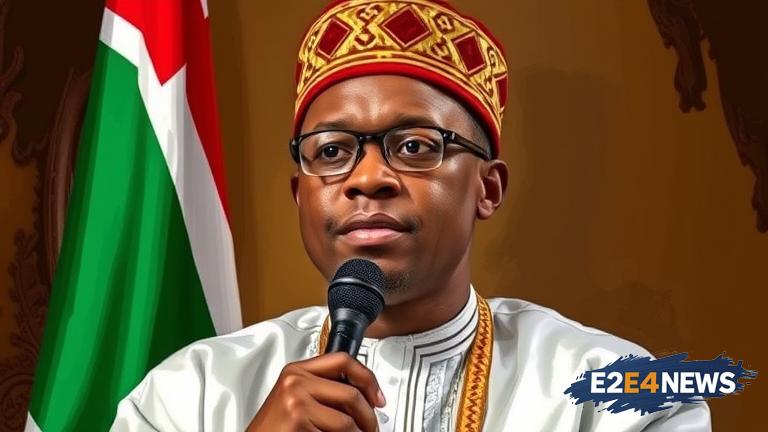The detention of Nnamdi Kanu, the leader of the Indigenous People of Biafra (IPOB), has been a contentious issue in Nigeria. Recently, Governor Mbah of Enugu State revealed that he tabled the matter before President Bola Tinubu, making it the first issue he discussed with the newly elected president. This move highlights the significance of Kanu’s case and the need for a peaceful resolution. Governor Mbah’s decision to prioritize Kanu’s detention demonstrates his commitment to addressing the concerns of the people of Enugu State and the South-East region. The pro-Biafra leader has been in detention since 2021, and his continued incarceration has sparked widespread protests and calls for his release. The Nigerian government has been criticized for its handling of the case, with many arguing that Kanu’s detention is a violation of his human rights. The IPOB leader was arrested in Kenya and extradited to Nigeria, where he has been held in custody ever since. Despite numerous court orders granting him bail, Kanu remains in detention, sparking concerns about the independence of the judiciary. The situation has also led to a rise in tensions between the Nigerian government and the IPOB, with the group accusing the government of persecution. Governor Mbah’s intervention in the matter is seen as a positive step towards finding a peaceful resolution to the crisis. The governor’s decision to engage with President Tinubu on the issue demonstrates his willingness to work with the federal government to address the concerns of the people of Enugu State. The meeting between Governor Mbah and President Tinubu is expected to lead to further discussions on the matter, with the possibility of Kanu’s release or a review of his case. The development has been welcomed by many, who see it as an opportunity for the Nigerian government to address the grievances of the IPOB and other pro-Biafra groups. However, others have expressed skepticism about the government’s willingness to release Kanu, citing concerns about national security and the need to maintain law and order. The case has also sparked a debate about the role of the Nigerian government in addressing the concerns of marginalized communities. Many have argued that the government’s handling of the case is a reflection of its broader approach to governance, with some accusing the government of ignoring the needs and concerns of certain regions. The situation has also led to a rise in separatist sentiments, with some groups calling for the creation of an independent Biafran state. Despite these challenges, Governor Mbah’s intervention in the matter offers a glimmer of hope for a peaceful resolution to the crisis. The governor’s commitment to addressing the concerns of the people of Enugu State and the South-East region is a positive step towards building trust and confidence in the government. As the situation continues to unfold, it remains to be seen whether the Nigerian government will take concrete steps to address the grievances of the IPOB and other pro-Biafra groups. The international community has also been watching the situation closely, with some calling for the Nigerian government to respect Kanu’s human rights and release him from detention. The case has also sparked a debate about the role of the international community in promoting human rights and democracy in Nigeria. As the country continues to navigate the complexities of the case, it is clear that a peaceful resolution will require a concerted effort from all stakeholders, including the government, civil society, and the international community.
